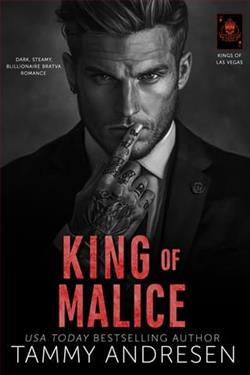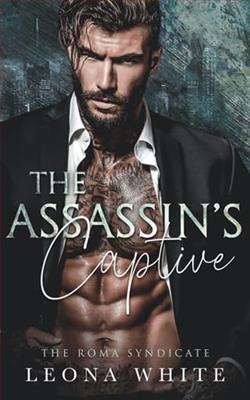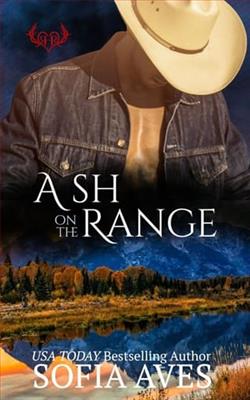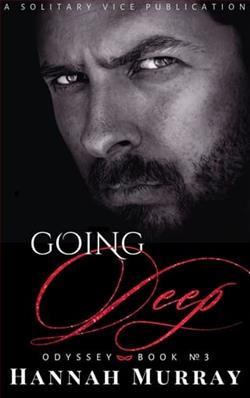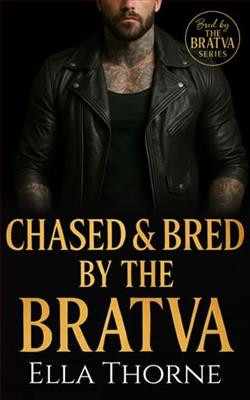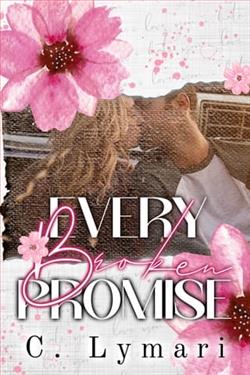Page 32 of Warrior Queen
“Where are we?” I asked. “How far now to Viroconium? Are we even in Powys yet?” The temptation to let the raiders get on with it and attack Cadwy was enormous. Teach the bastard a lesson.
“A good thirty miles to go yet,” Merlin said. “But we’re in Powys all right.” He frowned. “I’d assume their target to be Viroconium, but you never know. With an army of four hundred, they probably think they stand a good chance against Cadwy. The Irish are a contrary race. I once met one who told me it never ceases to rain in their homeland, which is why they keep on coming over here. Looking for a dry spot to live.”
That would normally have made me laugh, it being so true of Ireland, but under the circumstances, with a huge enemy army up ahead and only sixty men under my command, it wasn’t the place for mirth. “I wish we knew where Arthur was with the rest of the army,” I muttered, half to myself and half to Merlin.
“We’ll have to call a halt and let them move on,” Merlin said. “We can’t attack a force that size. And being on foot they’ll be slower than us. The last thing we want to do is catch them up. Or let their scouts spot us.”
I glanced at the thick forest to either side, an idea forming. I turned to the scouts. “Did you say they’re following the road?”
The second young man nodded. “We saw the signs of where they’d joined the road before we spotted them. A lot of freshly trampled ground where it was wet and muddy. They’d come down out of the forest along a rough track that brought them to the road. We knew to be wary, so we took good care as we continued. They don’t march like an army, though. They were all over the road, and some of them looked drunk.”
The other young man butted in. “If you ask me, they’ve not long looted someone’s villa. Only in a place that large would they find the ale and wine to get so many of them that drunk.”
I nodded. “And they think themselves safe enough to do that. So they can’t suspect they’re being followed– by us or Arthur.” I shook my head in frustration. “If only we knew where he was.”
The midsummer sun burned down on the back of my neck, and my skin itched under my heavy mail shirt, impossible to scratch. I turned to Merlin. “What lies ahead of them on the road? Isn’t there a town coming up soon?” If my memory served me, a small town lay a few miles further on at a confluence of several waterways– with no bridge, but a stone-lined ford.
He nodded. “Maybe ten miles distant. A long-abandoned fort occupies a hilltop to the west, and just after that lies the town of Breguoin on the north bank of the river. Roman once, but all British now. Not a huge population, and not well defended. Easy pickings for raiders bold enough to venture this far from the coast.”
I stared down the empty road. “We can’t just leave them to their fate. They’ll rape the women and take the children as slaves, after they’ve killed the men.” Thoughts of Ummidia and her daughters pricked my heart. Certainty that Irish raiders would be every bit as bad as Saxons made my stomach twist at the images that leapt into my head.
Merlin rubbed his chin. “Even if its walls are defensible, which I fear they’re not, we don’t have enough men to help them defend their town.”
Alezan fidgeted under me, impatient to be off again. I checked her fiercely. “But we’re on horseback and the Irish are on foot, and drunk.” I pointed at the woodland. “If they can travel through forest, then so can we, and faster than they can.” I twisted in my saddle to look back down the ranks of warriors and raised my voice. “Is there any here who knows the paths in this forest? A man of Gwent, perhaps?”
A rumble of muttered conversation ran through the men. Then a rider moved forward, dark haired and helmetless, hardly older than Rhiwallon. “I were born not far to the south of here, Milady,” he said, jerking a thumb back the way we’d come. “I used to know these woods well, as a boy.”
“Good.” I beckoned him forward. “Do you know a way to Breguoin from here? We need to travel through the forest as fast as possible to warn the townspeople, and remain unseen from the road.”
The boy nodded. “I do that.” His dark eyes danced with excitement– oh for the bravado of youth and excitement at what lay ahead instead of fear.
“What’s your name?” I asked.
“Peredur, Milady.”
I fixed him with a hard stare. “Well, Peredur, we’re relying on you to get us to Breguoin with time to evacuate the town to safety before the Irish arrive. Lead on. Quickly.”
With a somewhat out of place grin of delight, the boy took the lead. Glancing over my shoulder, I saw Rhiwallon’s equally excited face, where he rode a few horses back with the new friends who’d taken him off whoring and drinking in Caer Went, all of them a year or two older than him. For them this was one great adventure.
At the first small path we came to, Peredur branched off, heading left-handed and uphill into the forest. Just a narrow deertrod at first, it soon widened into a track we could trot and canter along, although the sweeping branches made it impossible to go flat out over the muddy, uneven ground.
Without hesitation, Peredur chose more side paths going off at angles that would have rapidly had me completely lost, had not the weak overhead sun given me a hint of direction. We kept up a steady pace, cantering wherever we could and only walking down the steepest, roughest slopes.
Ten miles is a long way, even on a horse, and a speed of eight miles an hour would have been good, getting us there in an hour and a quarter. By my reckoning we made it in nearer an hour, emerging from the forest on sweat-soaked horses into the wide river valley where the town lay.
All appeared peaceful. Small, fenced-in fields of wheat, oats, and barley lay scattered about the town in a patchwork of ripening shades, interspersed with fields full of delicious cabbages and the leafy tops of root vegetables. Sheep grazed on the open hillsides, and shaggy-coated cattle waded hock-deep in the marshy ground around the river, searching for the sweetest morsels of grass. Smoke rose from the houses sheltered within the tumbledown walls of the town. A peaceful sight. Lying this far inland, the inhabitants probably never in their worst dreams imagined danger heading their way.
Without hesitation, we cantered down the grassy slope, scattering indignant, bleating sheep to right and left, heading for the road and the river crossing. A few barefoot young shepherd boys turned to stare at us, then bolted after their sheep, whistling their dogs frantically. Sixty armed riders could mean nothing but trouble.
Nearer to the town, shirtless men, and women with their long skirts tucked up out of the way, labored in the fields on the south bank of the river. Seeing us, they turned frightened, wide-eyed faces in our direction, holding up their hoes and rakes defensively.
Merlin shouted to them as we passed, “The Irish are coming!” And we splashed through the shallow ford in front of the town. They dropped their baskets and ran.
On the north bank, the road led through what had once been a substantial gatehouse but now was nothing but a ruin, the walls no taller than my head while mounted. The gates had long gone, and the height of the stone curtain walls undulated between almost ground level and the height of a man. Nothing here that would defend the inhabitants from a bloodthirsty army of drunken Irish raiders.
We trotted through the empty gateway into a town made spartan by the loss of houses. A primitive wattle church to the right of center rose a little higher than the thatched rooftops, and between the buildings, more small fields spread out where once houses and workshops must have stood. A farming village, not a military one.
“The Irish are coming!” Merlin bellowed. The people in the street or in their vegetable patches dropped their tools to stand for a moment, staring at us, open-mouthed.










